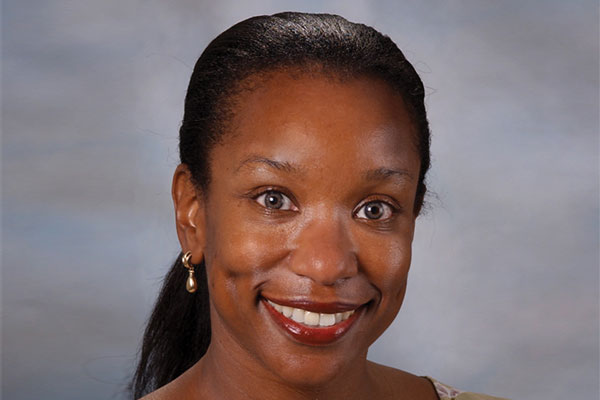First, let me make a confession. I am Vivian Harris Porche, M.D., an anesthesiologist, and I am afraid of “the doctor.”
I am also afraid of receiving injections, getting my blood pressure taken, and being examined. However, this underlying fear did not stop me from my lifelong goal of becoming a physician. Upon entering The University of Texas at Austin, I knew I wanted to become an empathetic doctor and needed to have the educational tools in order to become one. That is when I realized that understanding and controlling my fears would help me in accomplishing my goal. How is this done, you ask? There are many ways, but what helped shape my path is my Bachelor of Arts in Psychology.
Psychology [sahy-kol-uh-jee], noun: the science of mind and behavior; the study of mind and behavior in relation to a particular field of knowledge or activity. Studying psychology helped me to assuage my fears, but more importantly to my career, it helped me be more understanding of different personality types. And, this understanding helps me communicate better with my patients. The tenants that I learned while studying psychology guide me in all of my interactions. I understand people’s psyche, their actions, reaction, and non-actions. I understand their joy, angst, anger and pain. My knowledge of medicine eases and heals their physical ailments, while my knowledge of psychology provides a balm for their troubled mind. As an anesthesiologist, I am trained to use many different pharmaceutical methods to relieve anxiety and pain. I have studied and mastered anatomy, physiology and pharmacology, but the first and best drug I use with each and every patient is the time I spend in the initial interview. During my first interaction with that patient, I assiduously work to set a tone of confidence, ability and trust all wrapped up with empathy. In days past, a visit with the doctor was much different. He—and I intentionally mean he—knew all, spoke little and was never questioned. The doctor who spent his life caring for the ill and infirm was often aloof, cold and unapproachable. I knew that I wanted to be a better physician.
It was my liberal arts education that taught me how to be more approachable and available to my patients. I answer their questions in a way that they can understand, and give thought to simple, workable solutions. I humbly let my patients know that I am doing my best in taking care of them, and I will not hesitate to seek answers to those questions that I do not know. The care I show puts my patients at ease, which allows me to improve communication and establish a sense of trust. A relationship built on trust is important because I am often able to avert conflict through conversation rather than confrontation when problems arise. I also believe that when patients have peace of mind concerning their doctor, and they believe that the physician is invested in their well-being, the road to recovery is quicker and has fewer obstacles.
I am so blessed to follow my passion and I thank God every day as I conquer my fears. My liberal arts education has equipped me well with the tools I need to help allay and understand my patients’ fears. It has helped shape me into the compassionate, thorough physician that I am. I hope more medical school students choose the route that I did because our profession is the better for it. During that initial meeting, show your empathy, it can help you. Remember these paraphrased words from the Hippocratic Oath, “…First, do no harm.”
Dr. Vivian H. Porche, Psychology ’81, is a professor in the Department of Anesthesiology and Perioperative Medicine, Division of Anesthesiology and Critical Care, at The University of Texas MD Anderson Cancer Center in Houston, Texas
